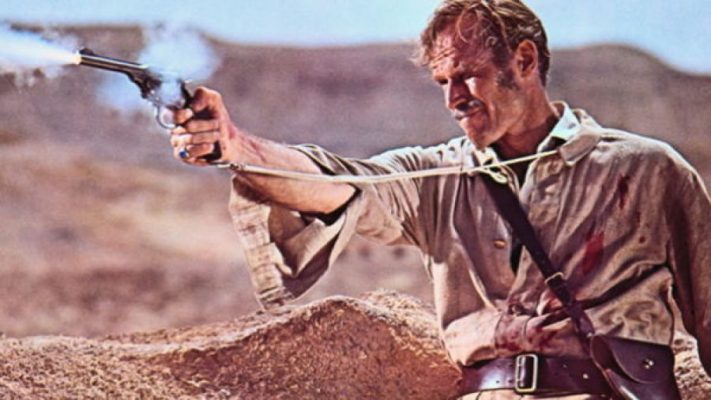Available on Blu-Ray Mon 3 Dec 2018
During the 1960’s, an era roaring with bombastic historical epics, a lesser remembered entry is Basil Dearden‘s film, Khartoum. It’s a sprawling tale of British imperialism, political underhandedness, and religious conviction.
Khartoum loosely covers events surrounding the 1883 uprising in the Sudan, under the self-proclaimed Mahdi, Muhammed Ahmed (Lawrence Olivier), and the mission of Major General Charles George Gordon (Charlton Heston), to act in the interests of the British Government and safeguard the city of Khartoum, up to and including its besiegement. The film also parallels the conflict between these two leaders, their vainglorious attitudes towards life and war, and the religious fervour that drives both men towards a bitter and unavoidable confrontation.
Made in the wake of Lawrence of Arabia and Zulu, it’s not difficult to see where the impetus behind Khartoum comes from, particularly in reference to David Lean‘s masterpiece. However, Khartoum isn’t quite on the same scale, in either scope or quality. For a “roadshow” epic, shot in Ultra Panavision 70, it’s a surprisingly flat-looking film that largely takes place in indoor sets. Still, it has moments of true beauty and Eureka Entertainment’s new high definition transfer has little in the way of blemish or visual artefact. It’s a vibrant picture, only let down by workmanlike direction and the limitations of some special effects technology of the time.
What sets it apart are the surprisingly current political sensibilities that feel remarkably frank and honest in showing the haughtiness and pride of all involved. Heston most of all should be commended on a solid performance that never shies away from honestly humanising Gordon; whether standing proud as a flawed military hero, or trembling with self doubt as he prays in private. It’s also hard not to draw parallels between Khartoum and Ridley Scott‘s Kingdom of Heaven, with their similar structure and thematic depiction of two ideologically opposing leaders, up to and during a siege. Similarly, Khartoum’s antagonism comes rather from the overwhelming political and religious realities at play, and the vying egos of Gordon, Ahmed and Prime Minister Gladstone (Ralph Richardson) than pointing fingers at any group or person in particular.
There is one big elephant in the room; that of Olivier, and other British thesps of the day, wearing a form of blackface make-up to play some of the key Sudanese Arab roles. Today this simply feels uncomfortable to watch, yet pains have been gone to avoid making these characters stereotypes. Olivier’s turn as the radical Islamist is surprisingly sympathetic. Still, it’s easy to feel that more could have been done to cast more accurately ethnic actors. That said, this is a film from 1966, and similar casting choices abound in other more lauded epics of the time.
As a package, the Blu-ray feels a little on the slight side, which is probably more a reflection on the film never quite attaining the popular classic status of some of its contemporary historical epics. The static menus leave a distinctly “no frills” feel. Although it does contain an enlightening interview with film historian Sheldon Hall, as well as an insightful audio commentary by Lem Dobbs, Julie Kirgo and Nick Redman. Both of which provide a wealth of information about the film and its production. Collectors and aficionados of historical epics could do a lot worse.
